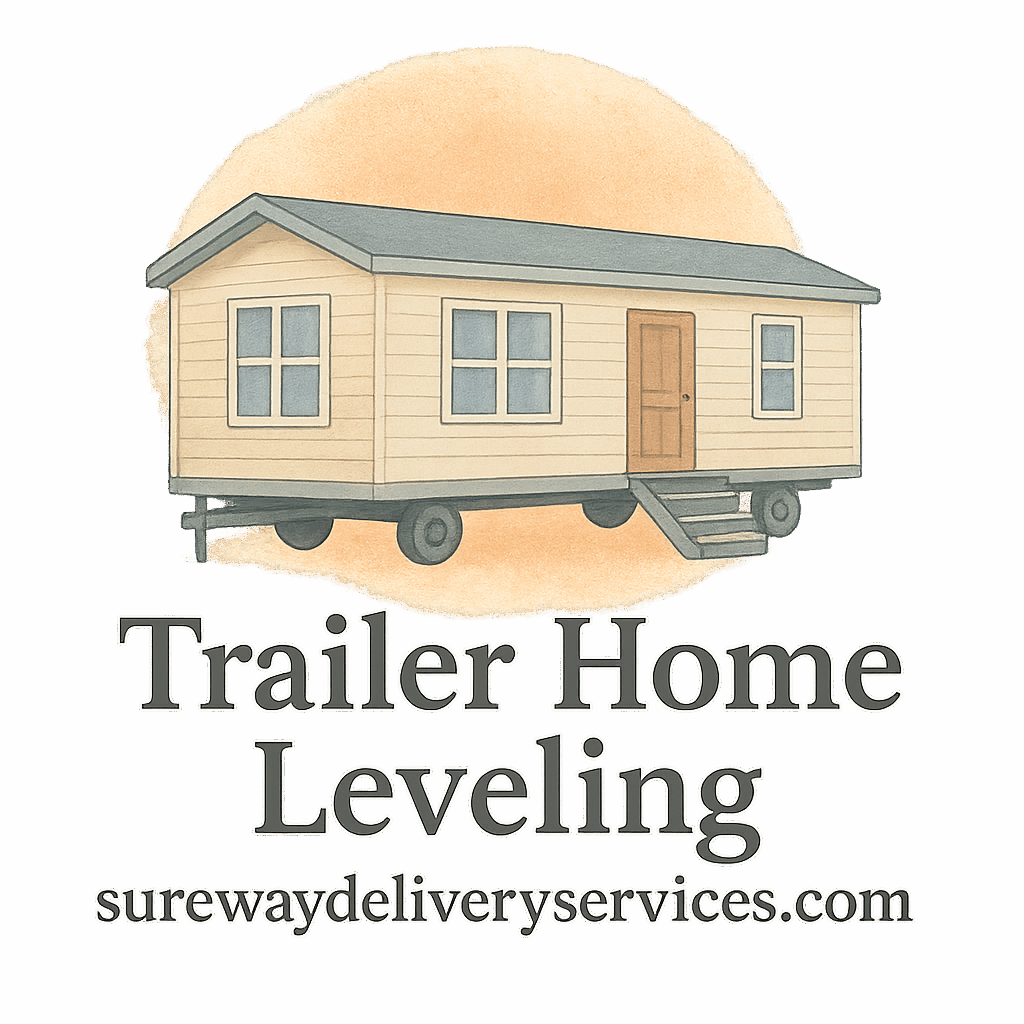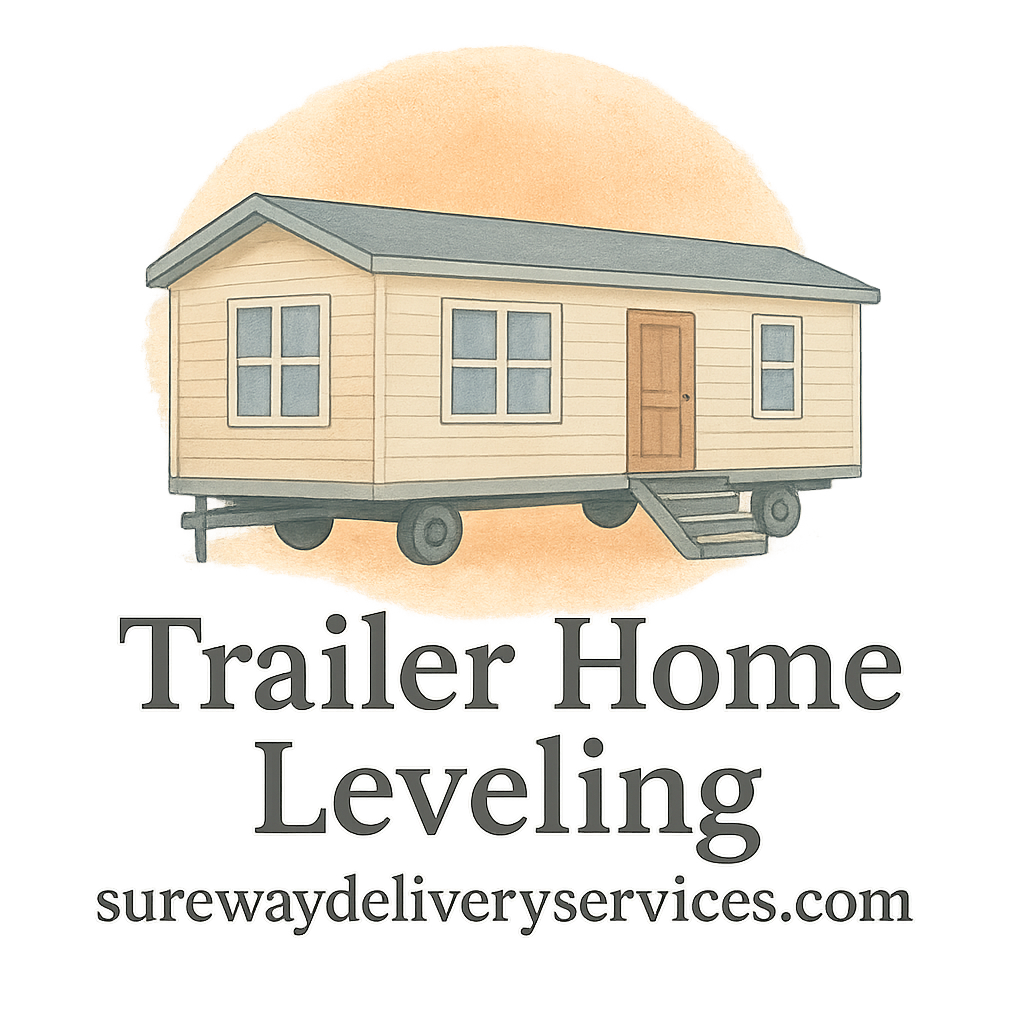Introduction
Let’s face it — trailer home living is all about freedom, flexibility, and cost-efficiency. But all that goodness can go off track if your trailer isn’t level. You might notice doors sticking, floors creaking, or worse — cracks forming in your walls. That’s why a solid annual trailer home leveling checklist is essential.
In this guide, we’re going to walk through 10 key steps to ensure your trailer is properly leveled every year. Whether you’re a seasoned trailer homeowner or a curious newbie, this checklist will help keep your home safe, comfortable, and solid as a rock.
Why Trailer Home Leveling Is Important
Preventing Structural Damage
Your trailer rests on a complex support system. If it’s out of level, pressure builds up unevenly across the structure, which can lead to serious structural damage. This isn’t just about comfort — it’s about long-term safety.
Enhancing Comfort and Safety
You don’t want to live in a home that wobbles, creaks, or shifts when you walk. An unlevel trailer can mess with plumbing, doors, and even windows. Annual leveling enhances your comfort and ensures your home stays safe year-round.
For a great primer, check out the basics of trailer leveling.
Understanding the Basics of Trailer Leveling
What Is Trailer Home Leveling?
Trailer leveling involves adjusting the support structure (piers, beams, and jacks) underneath your home so that it’s evenly balanced. Think of it like aligning the tires on a car — small misalignments lead to big problems over time.
How Often Should You Level Your Trailer?
At least once per year. If your trailer is parked on soil, or if it’s in an area prone to temperature swings or moisture, it might need attention more frequently. Regular maintenance and inspection can help.
10 Annual Home Leveling Checklist for Your Trailer
Let’s dive into the real deal — the checklist that’ll keep your trailer standing tall and proud.
1. Inspect Foundation and Ground Stability
Before you do anything else, check the ground under your trailer. Has it eroded or shifted? Soft or uneven ground can cause your trailer to tilt over time.
Pro Tip: Look for pooling water, mud, or signs of animal burrows.
2. Examine Trailer Skirting and Supports
Trailer skirting not only adds insulation but also protects the underside from environmental damage. If it’s loose, cracked, or falling apart, it’s time for a fix. Also, check your support piers and blocks for cracks or instability.
Relevant reading: Tag: trailer-details
3. Check for Signs of Uneven Floors or Doors
Walk through your trailer. Do certain areas feel “off”? Are doors dragging or refusing to latch? These are classic signs of a leveling issue.

4. Use a Water Level or Laser Level
Pull out the tools. Use a long water level or a laser level to check key points across your trailer. This gives you precise data — no guesswork.
Want to explore the right tools? Here’s the trailer leveling tools guide.
5. Inspect Pier and Beam Placement
If piers have shifted or settled, your whole frame might be stressed. Make sure they’re in the correct spots and level with each other. Also, ensure beams are snug and free of rot or rust.
6. Test Door Frames and Window Functionality
Misaligned door frames or sticky windows are not just annoying — they scream unlevel home. Test each one. If they’re not functioning properly, it’s time to adjust.
7. Look for Cracks in Walls or Ceilings
Hairline cracks near corners or ceiling seams can be early warnings. Regularly inspect for new cracks — and note if they’re growing over time.
Explore signs of trailer issues: Tag: trailer-issues
8. Tighten Anchor Bolts and Hardware
Loose bolts = a wobbly home. Annually go through all visible hardware, especially near the frame. Tighten anything that has shifted or wiggled loose.
9. Check the Jack System and Leveling Tools
Jack stands and scissor jacks can wear out. Inspect them for rust, wear, or weakness. If in doubt, replace them with quality home leveling jacks.
10. Schedule a Professional Inspection
Even if you’re a seasoned DIYer, there’s no harm in calling in the pros once a year. They’ve got the experience, tools, and trained eye to spot things you might miss.
Use this service hiring guide to find reliable help.
Best Tools and Techniques for Trailer Leveling
From laser levels to torque wrenches and hydraulic jacks, having the right tools makes leveling efficient and safe. For a full breakdown, visit techniques and methods.
Cost of Annual Trailer Leveling: Budgeting Tips
The cost can range between $300 to $1,000+, depending on your location, trailer size, and whether you hire help. See our cost and budgeting guide and cost-tips tag for budgeting advice.
Hiring a Professional vs. DIY Leveling
DIY is great for handy folks, but if you lack experience or your trailer has severe issues, hiring help can be worth every penny. Explore customer reviews before deciding.
Common Mistakes to Avoid
- Ignoring small shifts
- Using improper jacks
- Skipping annual checks
- Forgetting to check indoors
Avoiding these can save you thousands!
Signs Your Trailer Needs Immediate Leveling
- Cracked drywall
- Warped floors
- Sudden shifts in door/window performance
- New noises or creaks
- Visible tilts
Check out signs of leveling issues.
Benefits of Annual Trailer Leveling
- Longer trailer lifespan
- Improved safety
- Lower repair costs
- More comfort
- Higher resale value
Want more success stories? Read tag: success-stories
Final Thoughts
Leveling your trailer isn’t just maintenance — it’s protection. It’s peace of mind. With this annual checklist, you’re ready to keep your trailer steady, your belongings secure, and your living experience smooth.
Bookmark this post, run through it every year, and visit TrailerHomeLeveling.com to keep learning. It’s your home — let’s keep it leveled.
FAQs
1. How do I know if my trailer is out of level?
Look for sticking doors, cracks in walls, and uneven flooring — these are early red flags.
2. Can I level my trailer by myself?
Yes, if you’re handy and have the right tools. For severe shifts, hire a pro.
3. What is the best time of year for trailer leveling?
Spring or fall — the ground is most stable during these times.
4. What tools do I need for leveling a trailer?
Water level, hydraulic jacks, wrenches, blocks, and a flashlight.
5. How much does professional trailer leveling cost?
Typically between $300 and $1,000. Get multiple quotes.
6. How long does trailer leveling take?
DIY can take several hours. Professionals usually finish within 2–3 hours.
7. Is trailer leveling covered by insurance?
Sometimes, if it’s tied to structural damage. Always check with your policy.


